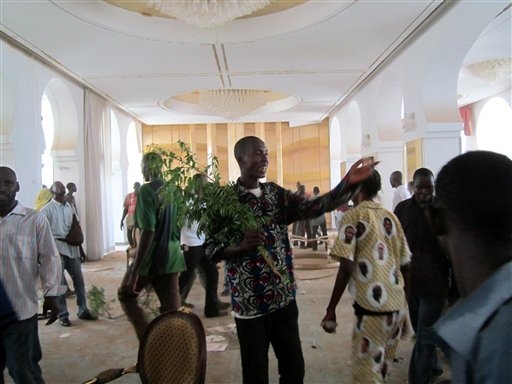
UNITED NATIONS (AP) — The U.N. Security Council said Monday it wants more information on a request by West African nations for U.N. authorization of possible military action in Mali, where a junta-led coup toppled the democratically elected government and led to a rebel takeover of the north.
The U.N.'s most powerful body issued a statement urging a political settlement of the crisis and giving its full support to mediation efforts by the West African regional bloc known as ECOWAS and chief mediator Blaise Compaore, the president of Burkina Faso. It strongly backed the sovereignty and territorial integrity of the now divided country.
The Security Council "took note" of the request by ECOWAS and the African Union for a mandate authorizing the deployment of an ECOWAS stabilization force to protect Malian government institutions "and assist in upholding the territorial integrity of Mali and in combating terrorism."
At a meeting with the Security Council last Friday, ECOWAS leaders urged council members to quickly adopt a resolution that would authorize any military action the organization takes in Mali
Salamatu Hussaini Suleiman, the ECOWAS commissioner for political affairs, peace and security, told reporters after the meeting that the response from the council was "very, very positive."
"The situation in Mali is very, very critical," she said. "We are requesting the U.N. Security Council to pass a resolution that will legitimize any action — military action — that we are going to take in Mali."
But the Security Council was cautious in its press statement on Monday.
Council members "expressed their readiness to further examine the request of ECOWAS once additional information has been provided regarding the objectives, means and modalities of the envisaged deployment and other possible measures."
The soldiers who seized power in March said they were ousting Mali's democratically elected leader because of his poor handling of the rebellion in the north, which began in January. After the coup, Tuareg rebels took advantage of the power vacuum and within weeks took control of the north aided by an Islamic faction.
The coup was a major setback for democracy in the nation of 15.4 million at the bottom of the Sahara desert. A dozen candidates had been due to run in the first round of presidential elections on April 29.